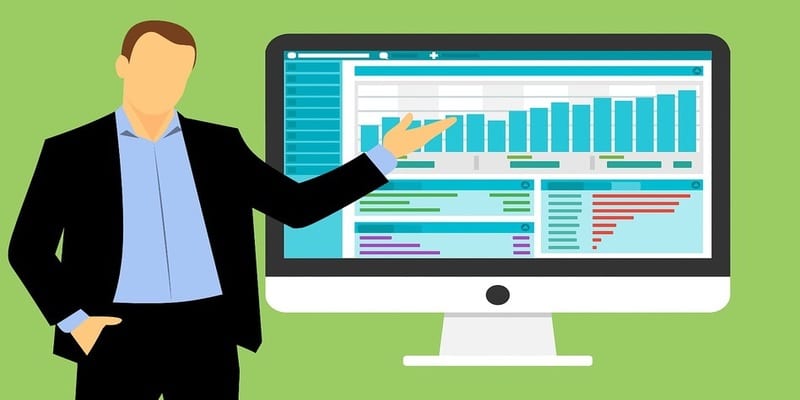
How does ERP Improve the Performance of Any Organization?
Be it small, medium, or large; each organization comprises many departments. Each department contributes differently to the success of any business. However, most companies struggle while synchronizing all the departments efficiently.
Enterprise Resource Planning (ERP) software can be efficacious for any business in this case. E.g., a travel ERP system helps automate all operations related to the travel agency business. This way, it contributes to the progress of the travel business.
ERP systems can be different depending on the specific needs of an organization. But, the main purpose of the ERM system is integrating business practices and coordinating across departments.
It gives each department permission to use the same information and resources by updating business operations. There are many other ways how ERP improves the performance of an organization. Let’s take a closer look at them.
How Can ERP Improve the Performance of Any Organization?
Any typical company consists of sales, accounting, inventory, purchasing, human resources, etc. In many companies, departments operate with limited real-time communication or collaborate with other departments.
They share information and data through emails, messaging, or phone calls. Of course, all these methods are reliable but can be time-consuming simultaneously. Also, there is uncertainty whether the shared information is up-to-date.
So, following these unproductive approaches can bring the risk for any business of losing any previous gains. Most competitive companies have already adopted an enterprise resource planning system for their business processes.
These organizations have integrated different parts of their business through ERP software. For example, a chemical erp can be beneficial for the companies in the chemical industry. It can be used to manage processes, such as process manufacturing, regulatory compliance, and customer relationship management. This can improve productivity and accuracy by ensuring that all departments have access to real-time, reliable data. From production and sales to accounting – everything is into one system to efficiently manage business procedures.
Simply put, simplicity is one of the major benefits of using ERP software. There are more ways how ERP helps improve business performance.
· ERP Centralizes All Systems
Each business needs a centralized system where anyone can see the entire picture. So, decision-makers can be aware of any updates in real-time. ERP system helps in creating such centralized system in the businesses.
Also, there is no risk of delays, just like slow-moving communications, including emails, messaging, phone calls, etc. Organizations can react fast to shifting market conditions. Thus, they never miss any customer demands and outshine the competition.
· Making Smarter Decisions and Effective Strategies
As the business operates over a centralized system, it receives a set of tools for analyzing different areas. This helps supervisors get the resources required to make smarter decisions.
· Improved Reporting
Since the business information is combined in one place, staff can create complete reports at any time. Lately, emerging businesses are using ERP systems for financial reporting.
Most ERP systems include built-in features like tax reporting functionality, revenue recognition, etc. All these help in balancing the reporting in seconds. ERP systems also have many business intelligence features.
This helps businesses in providing spontaneous analysis into business operations. Moreover, the ERP system offers faster access to reports and analytics to the employees.
· ERP Provides a Universal View of the Organization
Executives and Supervisors get a universal view of the entire organization through ERP software. Thus, it makes the reports and analytical dashboards accessible to all. Most system has a web-based interface, including customized dashboards.
Managements can view their required data without waiting for a supervisor to assemble a report. Thus, they can address the concerns immediately and improve proactive approaches.
· Better Customer Service
Businesses can provide high-quality customer service with up-to-date business information. Let’s say a customer asked for an item. You need to check whether it is still in stock or not.
In this case, you can check the records instead of asking the supply manager. This way, the business can provide information to the customer without wasting much time.
· ERP Adapts to the Businesses Easily
ERP doesn’t require businesses to adapt to its system. Instead, it adapts to the organizations depending on the business demand. ERP is a flexible solution. Organizations can customize it concerning the business’s existing database and operating systems. It works well with any-sized company.
· Enhanced Integrations
ERP solutions can be integrated with other services to extend their capabilities. E.g., you need to track sales figures and customer information. Here, you can integrate the ERP system with customer relationship management software to update your web-based purchases.
· ERP is Mobile and Cloud-based
Many people think on-premise ERP systems can be costly. That’s why they opt for cloud-based systems. As a cloud-based system, ERP software reduces the implementation cost significantly. They are also mobile. Hence, anyone can access the business information from any location.
Bottom Line
Overall, the Enterprise Resource Planning (ERP) system is incredibly precious for any growing business. If you are interested in upgrading your business and looking to add value to your business, contact us NOW!